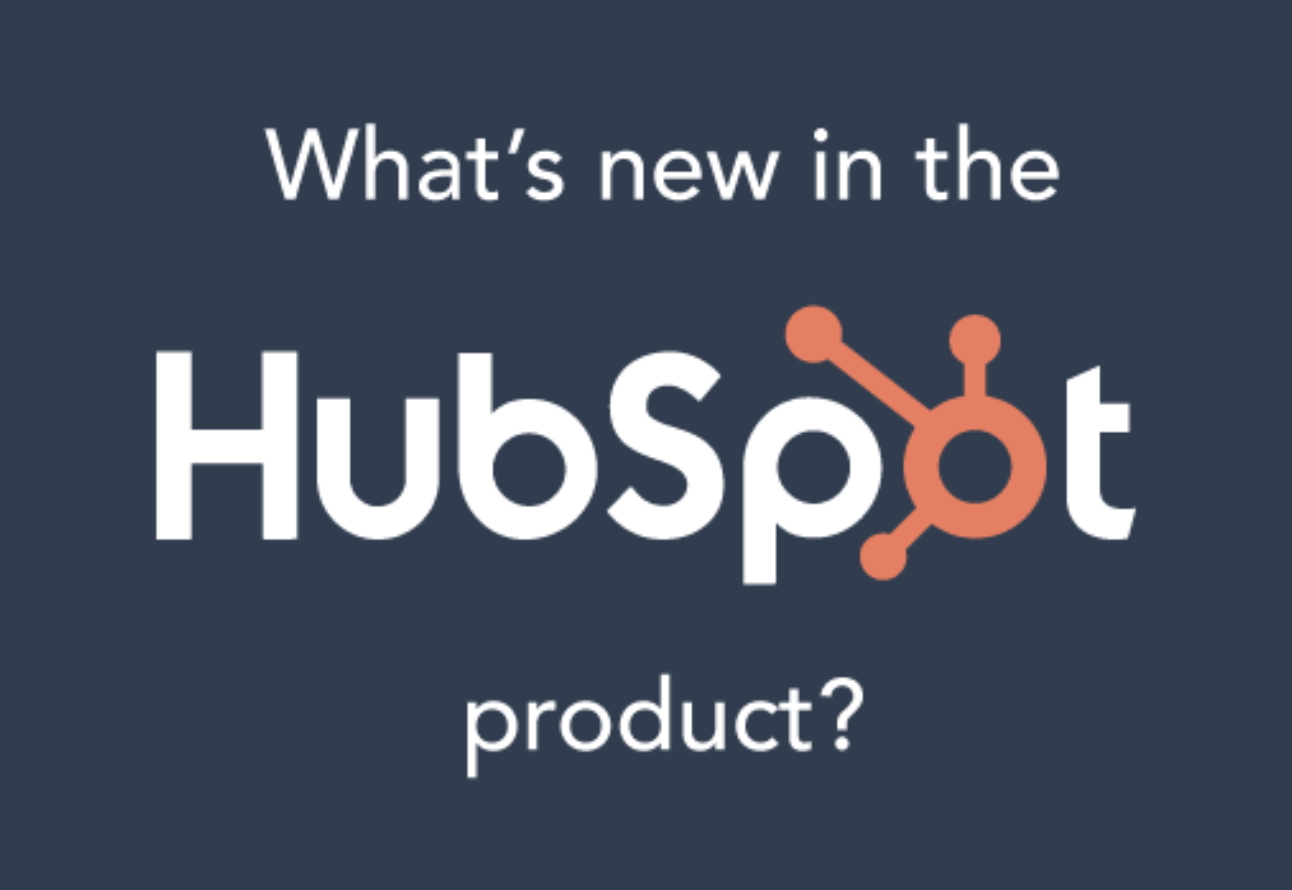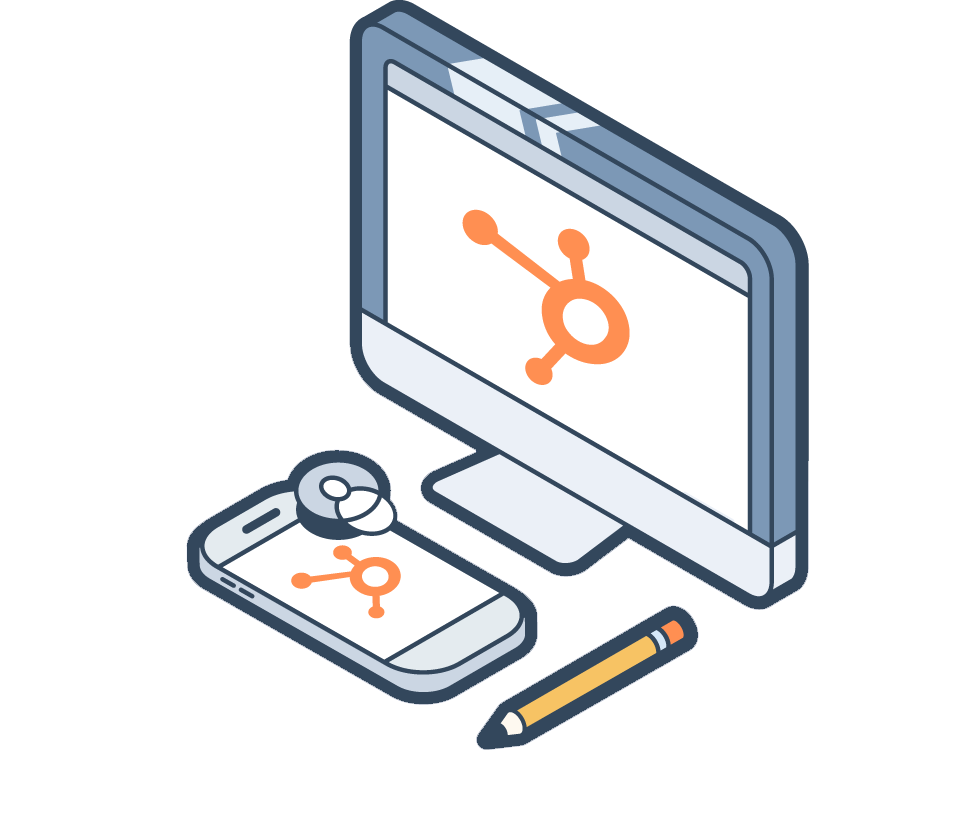Earlier this year, I traveled close to 11,000 miles across America with the goal of educating and inspiring people to create more effective content.

I did this in two ways:
- I hosted a series of content creation workshops at various HubSpot User Groups around the U.S.
- I met up with other content marketers along the travel route to learn from them – what works, what doesn't, and their thoughts on where the industry is going.
After I conducted my second workshop at San Diego's HubSpot User Group, I met up with SmartBug Media's CEO, Ryan Malone, to capture his inbound marketing words of wisdom and inspiration on camera.
Now, I'm a newb when it comes to video production, but I've had conversations with Ryan in the past about inbound marketing and life in general where I left those conversations wanting more. So I found a way to make it happen. Thanks again, Ryan, for inviting my wife, Ariele, and me into your home and letting us park our truck in Airstream outside of it.
Below is a transcription of Ryan Malone's interview.
What's your name?
My name is Ryan Malone. I am the Founder and CEO of SmartBug Media. We’re a digital marketing agency in Orange County, California with about 31 people.
Why did you start SmartBug?
Before SmartBug, I used to run marketing for technology companies, both public and private. There was always this tension between marketing and the agency. If the agency did well, it was their wizbang process; if they did poorly, it was somehow you didn’t give them what they needed for their system and it just never really felt right. If you peeled the onion, what you found was that the people who were doing the work weren’t the strategists you tried to hire; they were interns and graphic designers and off-shore and people that really shouldn’t be doing the strategy work you hired them to do in the first place. So, I asked some friends in the industry. They had the same problem. A few weeks later as I had this idea of SmartBug in my head, a friend of mine got sent on a business trip that he didn’t really need to go on. We had won an award for our client; it could have been a ten-minute phone call on a Friday afternoon to say congratulations, but our CEO insisted that he go on this trip. He went on this trip and he ended up missing his nephew's birthday party and it just struck me that life is about memories. If you look at a typical agency, there’s this big disconnect between the ability to create personal memories and the ability to do rewarding work. And we felt that we could create an agency that allowed you to create fantastic memories with your friends, with your family, train for a triathlon, spend time with a sick grandma, volunteer in your kid’s class, and those things shouldn’t cause conflict with the ability to do good work and create this body of work over the course of your lifetime that you’re really proud of. I always tell people as we created this company kind of set around that culture, is that if I run into one person in an airport when I’m done, when I’m older in my life and they say, “You know what? My time at SmartBug just changed the trajectory of my career,” or “allowed me to spend some quality time with somebody," or “do something that I hadn’t done,” then, we won. So, I quit my job. I went out and I started SmartBug. That was 2008. Here we are today. We’ve got about 31 people. We’re a completely remote model, which allows people the flexibility to live their life and do great work, and we are in about 15 states in the U.S. right now.
What attracted you to inbound?
Inbound is interesting, and the primary attractor for inbound is the whole psychology of the buyer. The closer you can get into someone’s head and really understand the psychological levers that make them do what they need to do, the better that you can tune your inbound program. If I look at all of those drivers around a person from a sales perspective, from a marketing perspective, from a service perspective, all the things that keep them up from a family perspective, then it makes it easy to dial all these different levers into an inbound campaign. You have data, you have psychology, it’s a puzzle, and it’s moving really fast with technology. As an agency, inbound is awesome because you really get to look at this giant mosaic of options you have to pull, from channels, from technologies, from messaging, from art, from creative, from flows through a website, and all those types of things and everyone has a tiny bit of impact. It allows you to put together this puzzle about what’s going to work, and that’s why we like inbound. We feel like because we have a passion for that type of thing, that it allows us to create value for long periods of time with our clients.
From a personal perspective, we actually ran into a client and a client sent us a spreadsheet and they said, “I have a problem. Every time my agency gives me my monthly report, they send me this spreadsheet and all the insights are different.” And when you looked at it and talked to them, it’s almost like the agency hid the stuff that was bad, that was good the last month, but it was bad this month and now showed these new insights to make it look like things were grand. It was actually pretty interesting because we were trying to look for some way that captured our interest in inbound, but a technology that allowed us to eliminate all of this black box thing with data around how to make inbound marketing work. This was, wow, when Hubspot was kind of in its infancy and we ran across a guy named Pete Caputa who was one of the early guys at Hubspot and said you know what, from a personal perspective, if I take interest in inbound and I take a piece of software that allows nobody to hide from the data so you have to collaborate, you have to look at the same data which makes all of those games around spreadsheet jockey work go away, then now everybody is on the same page. You can finally be an extension of your client’s team and it really allows you to move forward together. That personal interest in the psychology and the data piece, combined with the interest in the technology to make it so that the companies that do great work can shine, that was really some of the things that interested us in inbound, at least for me personally.
What should people stop doing?
I’d say there’s three things. The first thing is don’t rush persona development. Personas aren’t just a one-page “I like this,” “I don’t like this.” You have to really dig into personas. Get marketing’s opinion, get sales’ opinion, get the executive team’s opinion, interview more than just one or two customers in every segment, but really spend some time interviewing, doing some online surveying, really create this body of knowledge. Because without that, it’s like building a house without a foundation. So, first thing: stop shortcutting personas.
Second thing: don’t forget sales. As marketers, there’s always “oh, those are the sales guys” or whatever, but don’t do that. Those are the people that are closest to the client, they’re the ones that have the scars on their back about questions they couldn’t answer, things they couldn't resolve, deals that got stuck, all kinds of stuff like that. They are super, super important. The better relationship you have with the sales team, the better outcome you’re going to have for inbound.
The third thing is, think of inbound as a channel. It is not this “let me blog twice a week and money just falls from the sky” type strategy. It’s a very, very powerful channel that allows people who are trying to solve problems to find you, but make sure that you treat it as a channel that you have to nurture, you have to invest, you have to experiment, and all those types of things. I think if you focus on personas, if you make sure you include the sales people as part of that high-fidelity mix of what you’re trying to do, and you treat inbound as a powerful channel that you can invest in and grow and not some kind of money-fall-from-the-sky trick, then you’ll do very well.
What’s the most valuable lesson you’ve learned through running a business?
The most powerful one is people. If I look back at the decisions that we made that were really good ones and that impacted our business, the first is we started with this culture-oriented business. So, culture first. We said, “Hey, life is about these memories and you should be able to generate amazing life memories and do great work.” We wrapped ourselves in that mantra, figured out a business model that fit that culture, found the people that fit that business model, and really started from there.
The second one is systems. We strongly believe that everything you do in business is a system. Whether it’s a one-step process or a many-step process, everything is a system. And it doesn’t mean that creativity can’t be part of that system, but if you think about how to systematize all the things you do in your business, now scale becomes much easier. Take some time, and we learned this, to figure out your systems before you grow so that when you put your foot on the gas, you run into a lot fewer speed bumps than you would if you didn’t think through the system process. And you have time to think about them.
The third thing that I think is really important is measure. As an agency, we have to measure anyway for clients, but as a business person, there’s a whole bunch of different KPIs and measurements that are around your business, not just what you do for clients.
The fourth item that I would mention is to experiment, and these two things play together. If I measure, and I baseline, and I experiment, and I try things, and I remeasure and see what happened, and I ditched the things that didn’t work and keep the things that make these incremental improvements, whether they’re in profitability, employee happiness, customer happiness, or all of these things, that really allows you to move the ball forward and constantly iterate and organically improve your business.
What’s your favorite Hubspot tool?
I’m going to give you two. The first one is workflows. Well, there’s a caveat. In order to really use workflows, you’ve really really got to know your personas, but let’s assume that you do. With workflows, it’s just such a powerful tool, and when Hubspot added branching, it was just a complete game changer. On the customer-facing side, you can have this very, very rich conversation with your prospects that changes as they interact with your content, as they exhibit different behaviors, as they give you more information, and you can set up this very nice automated high-fidelity conversation at which you can measure every single little piece of it. That’s really, really powerful if you talk about being able to engage with your prospects in a high-scale environment.
The second one who is kind of the unsung hero that’s always been my favorite, but never gets a lot of love, is the contacts system. Contacts is the place where you learn about everything: where they click, how often they come, what information they give you, what behavior they have. Plus, it’s shared by sales and marketing. If you spend time really studying what your contacts do, what your best customers do, you can gleen so many insights out of it. Study your contacts, dig into that system, take what you learn, apply it to workflows, and you’ll completely change the way that you’re doing marketing with Hubspot.
What’s one inbound strategy that has transformed your business?
The one strategy that has transformed our business is when you’re starting to put together the editorial calendar, obviously you need to think about keywords and those types of things, but take a step back and answer every question that you can possibly answer for your clients. Maybe three years ago or so, we decided to start asking clients about all the questions that they have about inbound. We talked to our sales people, we talked to our clients, and said, “Hey, give me a list of a handful of questions that you really wanted to ask when you were trying to find out whether inbound worked, whether an agency was a good fit for you, and those types of things.” If you answer those questions, you are so far ahead because you’ve automatically generated goodwill with your prospects because you’ve answer it, if you’ve written a good piece, you’ve answered it in a way that shows you have credibility, plus you’re getting all of the long-tail search traffic from those questions. Sometimes taking that set of questions from your company that you really need to answer with your prospects is a much better approach than saying, “Hey, here’s the five keywords that I need to go after” and brainstorming on a bunch of topics. Start with the stuff that you know is getting asked first and then work your way into other things.
The second point that I’ll add to that is that it’s not a one-time thing– it’s an every single quarter, every month, every time you talk to your client, have your sales reps ask a prospect “what are three questions I could have answered for you today?”, write down every question that gets asked on sales calls, on marketing calls, and those types of things. And you’ll have a never-ending library of things you could write about successfully.
What will the inbound landscape look like in 2020?
That’s a good question. We get that question a lot. I think there’s really three things. One, is that there’s going to be a ton of competition. You already see that now. It used to be five years ago you wrote a blog post and that was all you had to do. Now, there’s tons of people doing it. Even though a tiny part of the market knows about it still, that will continue to grow. As that accelerates, the competition for content, for talent, for all of those types of things is going to increase. You need to be the person who knows your customer better than your competition, who creates better content than your competition, who understands how to have digital conversations and be relevant to your customer over the long term. Or you just won’t have a chance to win. To be good at those things is going to give you chance to swing at the ball, but it doesn’t necessarily mean that you’re going to win.
The second thing is that I think that from an inbound perspective, the ways that people try to solve problems are going to be more ubiquitous than they are now. And it’s pretty obvious. Right now, it’s all basically desktops and mobile, but look at set-top, look at voice search, look at all of these different ways that we’re starting to engage and interact with content. Those are the areas and the channels that you need to be prepared to do. And that might mean that it’s a different format than a blog or an email or an ebook or any of those types of things like a video. You need to be able to create really compelling content on the engagement channel that your customers are going to be at. And they’re starting to change. Make sure you are investing now in trying to understand what those channels do, how you measure them, how you deliver content for them, what works, what doesn’t, who the players are, and start to get that now so that you’re not behind the curve when those things hit maturity.
And then the third thing is just brand publishing. It’s starting now, right? Brands have YouTube channels, brands have really powerful Twitter feeds, brands are on Facebook. The loyalty is starting to shift from the problem that you’re trying to solve to the brand that has the content that can help you solve it. Not only are you just searching for content in particular places, but sometimes people are starting to look for content on particular brands first. You really need to establish yourself in your industry as the brand that has the content that is most compelling and helpful to the audience. That means really rich, deep, immersive content that solves problems not just at a superficial "Seven Ideas to do XYZ"-type level, but really digs down that can help customers and prospects solve some of their toughest challenges. If you do that, they’re going to have loyalty to your brand, and it’s going to box out competition from traditional searches that you might have. I would focus on those things if I look at 2020 and how we’re preparing for that part of the market.
If you could go back five years, what would you do differently?
Well, if I split those up going back five years between inbound and business, on the business side the first thing is hire above yourself. Hire the smartest, most driven people that you possibly can. The second thing is put some systems in to make sure that you scale. But, here’s the third thing that really I think has helped catapult our agency into one of the diamond partners and really successful track record: let people be heroes. We have a value called “rock the customer experience,” which is if you hire smart people, you give them some guardrails on where you’re trying to head, and let them be a hero. You do that, you’ll do very well in business. And don’t forget to measure.
On the inbound side: tinker, tinker, tinker. Constantly measure, constantly explore, try new things, discard the stuff that doesn’t work, don’t be afraid to fail is the first part. The second part is get involved in some type of community, whether it’s a masters group, whether it’s some cross-industry team, whether it’s an online forum, but don’t be afraid to share. There are so many insights and tricks and things that can help move you forward from different industries and different types of companies, that the more you talk to people and you share and you become part of a community, the more that you are going to be able to speed your growth. The third thing is, you’ve constantly got to learn. Things change. Read, listen to podcasts, explore things. Continue to educate yourself over time. I think if you do those things, you’re going to be on the right trajectory to have a very bright future.
What advice do you have for someone getting started with inbound?
The first thing to do with inbound is be consistent. First of all, learn as much as you can. I would start with something that you can start to master early. In the near term, you want to learn some core skills. You want to be able to understand your personas. You want to be able to learn how to interview people. You want to be able to learn how to collect data from third parties and insights from people and have casual conversations that unlock things that are going to be useful in targeting them.
The second thing that you need to learn is how to create content that resonates with them. Whether you hire it, whether you do it yourself, that doesn’t matter. The ability to source that stuff [does].
The third thing is, as you start to be able to do those things, to create content that resonates, is understand what the numbers mean because that’s going to help you decide where you go next. Once you have an understanding of analytics, I would say that now you need to pause and become a generalist. I think that as if you are trying to scale over the long term, what you really want to be able to do is you’re never going to be able to do all that work for yourself. You need to know enough about a topic to be functional and good, but you don’t need to spend the extra time to become an expert at every little topic because you just don’t have time to do that. What you need to understand is what’s the goal of this particular vehicle or the strategy that I’m doing, what are the ways that it needs to be done, how do I measure success for that, and then how do I find somebody and vet somebody who’s an expert in that space that I can plug in and start to scale my business? So, I would start with those fundamentals; become a generalist and then look to hire experts for the areas that you need to scale.
What’s SmartBugapalooza?
As a remote company, we’ve got people all over the country. It’s this really interesting dynamic. We do a lot of video. You work with people a lot on video and you see them everyday and you become part of their life, but you’re never actually able to touch their hand or give them a hug or have human contact necessarily. So, every year we bring our entire company and their spouses or significant others, if they want to come, out to California. We usually do it on the west coast. We did Napa Valley one year. We did Vegas one year. We did Newport Beach this year. We just finished it, in fact. And it’s really cool to just step back and see people who walk up to each other and they don’t know whether to hug, they don’t know whether to shake hands, and in five minutes that discomfort is gone and they’re best friends. You can just sit back and watch these people that you know work together become besties over this three- or four-day experience. We do that where there’s a day of work where we have to get stuff done, but the rest of it is just fun. It’s a chance for employees to work together. It’s a chance for their family members to understand what we’re about. [It’s a chance] to realize that this face that you talk to all the time, this person that you’re part of their life, they’re real and they have their own life and they have something to bring to the table. And at the end of SmartBugapalooza, it’s so cool. We go around the room and we just say, “Hey, say what you’ve got to say” and some people cry (myself included, sometimes) because it’s so emotional and neat, some people say that they’ve never been in this type of environment, they talk about the people they’ve met, they talk about the work that they’ve done, they talk about the support they’ve had. That little 15-minute, 20-minute internalizing of everything that happened at this event, that’s what you remember the rest of your life. It’s really not the stuff you do everyday. It’s those people and their families and the experiences that you had. The fact that we can give that to people, that’s the stuff that I’m going to remember when I’m old. It’s just such a cool thing to watch.
What final thought do you have for those watching this video?
Take some time to smell the roses. You’re going to wake up everyday, you’re going to look at your computer, you’re going to see your 50 competitors that are writing stuff about you, and all that’s great, but smell the roses. When you do something successful for somebody, you’ve impacted their life. When you hire a new employee and you develop a relationship with them, you’ve impacted their life in a good way. So, pat yourself on the back every once in awhile and sit back and think about some of the stuff that you’ve done and that you’ve built, and don’t get caught on this constant hamster wheel all the time. Too many people do it. Just take a break and realize what you’ve built. Realize it’s about memories.
For example, you and I are not going to remember this conversation likely. When we’re both 80 and we’re looking at the end part of our life (hopefully I make it longer than that), we’re not going to remember this specific conversation and we may not even remember each other, but you’re going to remember this roap trip that you took with your wife, you’re going to remember the fact that you went to Orange County, and that you went to Santa Barbara, and you did this cool stuff. You might remember some piece of this conversation or some takeaway, but you’re not going to remember the night that you worked until eight o’clock and those types of things, so focus on the memories. Take a breath and focus on the things that you’re going to remember as you grow old and you’re going to apply to the rest of your life and the people that you meet and the people that you impact and the lives that you change. Because no matter how big you are, you’re impacting somebody. Just be cognizant of that and be proud of it and I think that mindset has allowed us to do really nice things. If you just do that for a second it will completely change your behavior and your whole demeanor.
Want to see SmartBug's content in action? Sign up for HubSpot Academy's free Content Marketing Certification course today.










